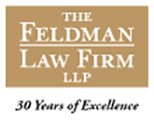| Tiny Insurers Face Scrutiny As Tax Shields By David Cay Johnston THE NEW YORK TIMES April 4, 2003 |
Congressional Republicans and Democrats said yesterday that they were looking into supposedly tiny, tax-exempt insurance companies and how they have been used to shield many millions of dollars of investment profits from taxes. The focus of these inquiries, for the moment, is a billionaire Wall Street investor, Peter R. Kellogg, who for 10 days refused to comply with a federal law requiring him to make available on request the annual reports that his tax-exempt insurance companies file with the Internal Revenue Service. Mr. Kellogg produced those documents late yesterday. The newly released documents show that in 2000 and 2001 one of Mr. Kellogg's insurance companies, IAT Reinsurance, avoided $78.6 million in federal taxes on its profits. All told, during the six years from 1996 through 2001, IAT Reinsurance escaped $189 million of taxes on $539.6 million of investment profits. Another of Mr. Kellogg's companies, SLK Reinsurance, escaped taxes of $1.3 million on profits of $3.7 million in 2000 and 2001, the documents provided last night showed. Tax-exempt insurance companies were allowed by Congress in 1954 as a way to help farmers and others having a hard time getting insurance. The companies were supposed to be tiny: Congress allowed the exemption only if the insurance companies collected less than $350,000 in premiums. But there is a loophole: Congress did not limit the assets these insurance companies could own and invest free of taxes. So the companies simply collect a small amount in premiums for a small amount of insurance. Then they set aside as reserves far more money than would ever be needed to pay claims, and invest that money tax-free. The technique is legal. But some experts on insurance and taxes say many of these companies are a tax dodge that should be blocked. Representative Richard E. Neal, Democrat of Massachusetts and a leading Congressional critic of abusive tax avoidance techniques, wrote to Pamela Olson, the assistant secretary of the Treasury for tax policy, asking what steps she would take in light of an article in The New York Times on Tuesday about many such companies that earned huge profits tax-free. "My primary concern is that these are investment and tax-avoidance vehicles which may be hiding behind provisions intended for legitimate insurance products," Mr. Neal wrote. He then hinted that Mr. Kellogg's companies and others should be audited, saying he hoped that "the Treasury Department and the I.R.S. will review this matter expeditiously and take any appropriate administrative action." Ms. Olson said last night that the Treasury had already directed the I.R.S. to aggressively pursue abuses of tax-exempt insurance companies. "We are in a target-rich zone," Ms. Olson said, "because we had too many years of no enforcement going on and that is the hole we are trying to dig ourselves out of now." Advised that no large tax-exempt insurer has said it is currently under audit, Ms. Olson said, "I certainly hope there is considerable activity by the I.R.S. in this area." The House Ways and Means Committee staff is looking into issues raised by tax-exempt insurance companies, Christin Tinsworth, a spokeswoman for Representative Bill Thomas, Republican of California, said Wednesday. So is the staff of the Congressional Joint Committee on Taxation, House and Senate aides said. In the Senate, both the chairman of the Finance Committee and the ranking Democrat said they planned to send a letter asking the Treasury for the Kellogg reports. Senator Charles E. Grassley, Republican of Iowa, and Senator Max Baucus, Democrat of Montana, announced their plans several hours before Mr. Kellogg complied with the requirement to provide them by faxing them to The Times. Mr. Baucus said the tax exemption's purpose was to help small insurance companies get started and "to the extent that recipients evade the provision's intended purpose, we need to get to the bottom of it." Federal law requires owners of tax-exempt insurance companies to make report forms available on request, with a one-day delay for "extraordinary circumstances." The documents provided last night were requested March 25. At least 1,480 insurance companies claim the tax exemption. None have been audited by the I.R.S., though a small sample will be, according to the I.R.S., as part of a study of how to audit such concerns. At least eight of these companies have both assets and annual revenues of more than $50 million. Many other companies have either assets or annual revenues in the millions of dollars, but collect little or no premiums and pay little or nothing in claims.
|


